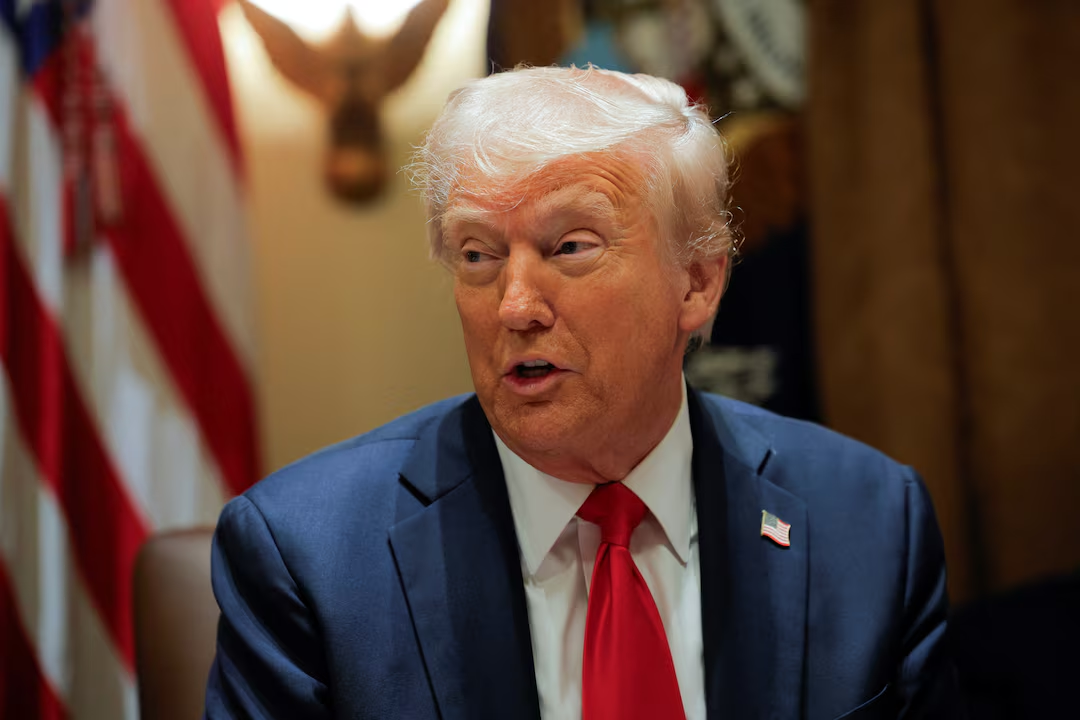Trump Revokes Chevron’s Venezuela Oil License Over Electoral Concerns
U.S. President Donald Trump announced Wednesday that he is revoking a key license allowing Chevron to operate in Venezuela, citing a lack of progress on electoral reforms and the repatriation of Venezuelan migrants.
In a statement on his Truth Social platform, Trump declared he was “reversing the concessions” granted under the Oil Transaction Agreement dated November 26, 2022. While he did not directly mention Chevron, the license in question had been issued to the oil giant during President Joe Biden’s administration, permitting it to continue operations in Venezuela’s oil sector.
Venezuelan Vice President Delcy Rodríguez condemned the decision, calling it “damaging and inexplicable.” In a statement posted on Telegram, she argued that such actions have contributed to Venezuela’s migration crisis.
Biden-Era Energy Licenses Under Scrutiny
U.S. Secretary of State Marco Rubio later reaffirmed Trump’s stance, stating on X that the administration would move to terminate all Biden-era oil and gas licenses that had “shamefully bankrolled the illegitimate Maduro regime.”
The scope of Trump’s decision remains unclear, as several U.S. and foreign firms hold licenses permitting limited transactions with Venezuela’s state-run oil company, PDVSA.
Chevron, which exports roughly 240,000 barrels per day from Venezuela—accounting for over a quarter of the country’s oil production—acknowledged Trump’s announcement and said it was assessing the potential impact. If the license is officially rescinded, U.S. refiners would be unable to purchase Venezuelan crude due to existing sanctions, potentially disrupting global oil flows.
Trump’s move marks a return to his administration’s hardline stance on Venezuela, which previously enforced “maximum pressure” sanctions targeting the country’s energy sector.
Electoral Conditions in Question
Trump also accused Venezuelan President Nicolás Maduro of failing to uphold agreements related to elections and migrant repatriation. In early February, Trump claimed Caracas had agreed to take back Venezuelan migrants residing illegally in the U.S., following negotiations led by U.S. envoy Richard Grenell.
While Trump did not specify what electoral conditions had not been met, his remarks align with longstanding U.S. accusations of election fraud in Venezuela. The Venezuelan opposition claims it won the July 2024 presidential election in a landslide, a position supported by the U.S. and other Western nations.
Prominent opposition leader María Corina Machado praised Trump’s decision, stating in an interview with Donald Trump Jr. that it demonstrated his commitment to democracy and the Venezuelan people.
Related Posts
Economic and Oil Industry Fallout
The revocation of Chevron’s license is expected to have significant economic repercussions for Venezuela. The oil revenue generated under U.S. licenses has been a critical source of funding for Maduro’s government, estimated at $2.1 billion to $3.2 billion annually, according to energy consultancy Aurora Macro Strategies.
Chevron’s license was structured to allow the company to recover billions in debt owed by PDVSA. By the end of 2024, Chevron was projected to have reclaimed approximately $1.7 billion.
Meanwhile, U.S. Energy Secretary Chris Wright downplayed concerns over global oil supply, noting that the U.S. remains the world’s largest oil producer and that “small interruptions from other nations” would have minimal impact.
With the license set to expire on March 1, questions remain about how ongoing shipments of Venezuelan crude to U.S. refineries will be handled.
The Maduro government has long rejected U.S. sanctions, denouncing them as part of an “economic war” aimed at destabilizing Venezuela. While officials tout the country’s resilience, sanctions have historically exacerbated economic hardships.
As the situation unfolds, oil markets and geopolitical analysts will be closely monitoring the impact of Trump’s latest policy shift.

















